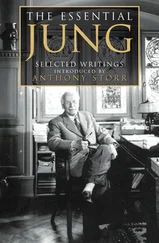I assured the doctor that I had indeed made this reflection.
"A very few moments will suffice," he said, "to disabuse your mind of that notion and to show you how wonderfully a little rational system has simplified the task of finding a fitting vocation in life which used to be so difficult a matter in your day and so rarely was accomplished in a satisfactory manner."
Finding a comfortable corner for us near one of the windows of the central hall, the doctor presently brought a lot of sample blanks and schedules and proceeded to explain them to me. First he showed me the annual statement of exigencies by the General Government, specifying in what proportion the force of workers that was to become available that year ought to be distributed among the several occupations in order to carry on the industrial service. That was the side of the subject which represented the necessities of the public service that must be met. Next he showed me the volunteering or preference blank, on which every youth that year graduating from the unclassified service indicated, if he chose to, the order of his preference as to the various occupations making up the public service, it being inferred, if he did not fill out the blank, that he or she was willing to be assigned for the convenience of the service.
"But," said I, "locality of residence is often quite as important as the kind of one's occupation. For example, one might not wish to be separated from parents, and certainly would not wish to be from a sweetheart, however agreeable the occupation assigned might be in other respects."
"Very true," said the doctor. "If, indeed, our industrial system undertook to separate lovers and friends, husbands and wives, parents and children, without regard to their wishes, it certainly would not last long. You see this column of localities. If you make your cross against Boston in that column, it becomes imperative upon the administration to provide you employment somewhere in this district. It is one of the rights of every citizen to demand employment within his home district. Otherwise, as you say, ties of love and friendship might be rudely broken. But, of course, one can not have his cake and eat it too; if you make work in the home district imperative, you may have to take an occupation to which you would have preferred some other that might have been open to you had you been willing to leave home. However, it is not common that one needs to sacrifice a chosen career to the ties of affection. The country is divided into industrial districts or circles, in each of which there is intended to be as nearly as possible a complete system of industry, wherein all the important arts and occupations are represented. It is in this way made possible for most of us to find an opportunity in a chosen occupation without separation from friends. This is the more simply done, as the modern means of communication have so far abolished distance that the man who lives in Boston and works in Springfield, one hundred miles away, is quite as near his place of business as was the average workingman of your day. One who, living in Boston, should work two hundred miles away (in Albany), would be far better situated than the average suburbanite doing business in Boston a century ago. But while a great number desire to find occupations at home, there are also many who from love of change much prefer to leave the scenes of their childhood. These, too, indicate their preferences by marking the number of the district to which they prefer to be assigned. Second or third preferences may likewise be indicated, so that it would go hard indeed if one could not obtain a location in at least the part of the country he desired, though the locality preference is imperative only when the person desires to stay in the home district. Otherwise it is consulted so far as consistent with conflicting claims. The volunteer having thus filled out his preference blank, takes it to the proper registrar and has his ranking officially stamped upon it."
"What is the ranking?" I asked.
"It is the figure which indicates his previous standing in the schools and during his service as an unclassified worker, and is supposed to give the best attainable criterion thus far of his relative intelligence, efficiency, and devotion to duty. Where there are more volunteers for particular occupations than there is room for, the lowest in ranking have to be content with a second or third preference. The preference blanks are finally handed in at the local exchange, and are collated at the central office of the industrial district. All who have made home work imperative are first provided for in accordance with rank. The blanks of those preferring work in other districts are forwarded to the national bureau and there collated with those from other districts, so that the volunteers may be provided for as nearly as may be according to their wishes, subject, where conflict of claim arises, to their relative ranking right. It has always been observed that the personal eccentricities of individuals in great bodies have a wonderful tendency to balance and mutually complement one another, and this principle is strikingly illustrated in our system of choice of occupation and locality. The preference blanks are filled out in June, and by the first of August everybody knows just where he or she is to report for service in October.
"However, if any one has received an assignment which is decidedly unwelcome either as to location or occupation, it is not even then, or indeed at any time, too late to endeavor to find another. The administration has done its best to adjust the individual aptitude and wishes of each worker to the needs of the public service, but its machinery is at his service for any further attempts he may wish to make to suit himself better."
And then the doctor took me to the Transfer Department and showed me how persons who were dissatisfied either with their assignment of occupation or locality could put themselves in communication with all others in any part of the country who were similarly dissatisfied, and arrange, subject to liberal regulations, such exchanges as might be mutually agreeable.
"If a person is not absolutely unwilling to do anything at all," he said, "and does not object to all parts of the country equally, he ought to be able sooner or later to provide himself both with pretty nearly the occupation and locality he desires. And if, after all, there should be any one so dull that he can not hope to succeed in his occupation or make a better exchange with another, yet there is no occupation now tolerated by the state which would not have been as to its conditions a godsend to the most fortunately situated workman of your day. There is none in which peril to life or health is not reduced to a minimum, and the dignity and rights of the worker absolutely guaranteed. It is a constant study of the administration so to bait the less attractive occupations with special advantages as to leisure and otherwise always to keep the balance of preference between them as nearly true as possible; and if, finally, there were any occupation which, after all, remained so distasteful as to attract no volunteers, and yet was necessary, its duties would be performed by all in rotation."
"As, for example," I said, "the work of repairing and cleansing the sewers."
"If that sort of work were as offensive as it must have been in your day, I dare say it might have to be done by a rotation in which all would take their turn," replied the doctor, "but our sewers are as clean as our streets. They convey only water which has been chemically purified and deodorized before it enters them by an apparatus connected with every dwelling. By the same apparatus all solid sewage is electrically cremated, and removed in the form of ashes. This improvement in the sewer system, which followed the great Revolution very closely, might have waited a hundred years before introduction but for the Revolution, although the necessary scientific knowledge and appliances had long been available. The case furnishes merely one instance out of a thousand of the devices for avoiding repulsive and perilous sorts of work which, while simple enough, the world would never have troubled itself to adopt so long as the rich had in the poor a race of uncomplaining economic serfs on which to lay all their burdens. The effect of economic equality was to make it equally the interest of all to avoid, so far as possible, the more unpleasant tasks, since henceforth they must be shared by all. In this way, wholly apart from the moral aspects of the matter, the progress of chemical, sanitary, and mechanical science owes an incalculable debt to the Revolution."
Читать дальше












